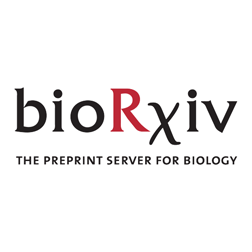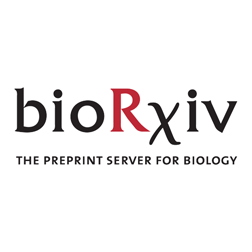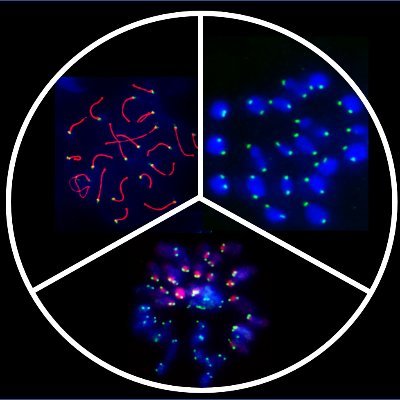
Abigail DiVito Evans, Ph.D.
@DivitoAbigail
Followers
165
Following
755
Media
6
Statuses
140
Scientific Advisor at Riverside Law LLP | PhD UPenn | UMD alum
Philadelphia, PA
Joined October 2018
I am super excited to share the first paper out of my PhD! Here, we chose D. melanogaster pigmentation as a model phenotype to study the nature and repeatability of complex trait evolution in the field . . .🧵 https://t.co/FF14PMhHrs
biorxiv.org
Populations are capable of responding to environmental change over ecological timescales via adaptive tracking. However, the translation from patterns of allele frequency change to rapid adaptation...
1
22
64
This new study from researchers at @PennBiology suggests that environment-dependent phenotypic plasticity, where organisms adapt to fluctuating environments, is mediated by epigenetic factors: https://t.co/Ua8iPRd9s7
0
3
3
An awesome tool, I’m excited it’s finally out for the world to see! Congrats @damian_dudka!
Did you know that kinetochore proteins evolve rapidly, suggesting functional innovation?🤩 Check out our new computational tool FREEDA that detects protein innovation fully automatically - run it yourself and see if your favorite protein innovates too! https://t.co/oH95xWr9S7
0
0
0
Did you know that kinetochore proteins evolve rapidly, suggesting functional innovation?🤩 Check out our new computational tool FREEDA that detects protein innovation fully automatically - run it yourself and see if your favorite protein innovates too! https://t.co/oH95xWr9S7
biorxiv.org
Cell biologists typically focus on conserved regions of a protein, overlooking innovations that can shape its function over evolutionary time. Computational analyses can reveal potential innovations...
2
10
43
We’re thrilled for our PCGI Symposium today, 2-5 PM, on “Repetitive DNA and Development” featuring: Xin Chen (HHMI/Johns Hopkins); Damian Dudka (Lampson Lab/UPENN); Todd Macfarlan (NIH); Sung-Ya Lin (Graduate Student, Levine Lab/UPENN) More info:
events.med.upenn.edu
Combination of external speakers and trainee speakers, featuring: Xin Chen, PhD Investigator, Howard Hughes Medical Institute Profes...
0
4
8
#cellbio2022 come check out Lampson lab talks and posters! Minisymp cell division: @asdScott0331 , Sunday; Subgroup evo cell biology: @damian_dudka, Monday; Microsymp nuclear power: @das_arunika Tuesday. Check out posters from our lab and alum @TakashiAkera and @lab_zhang labs.
0
5
18
These results suggest that diapause is regulated epigenetically, but that the mechanisms underlying this epigenetic regulation are genotype-dependent.
0
2
2
However, we found that in a tropical inbred line with low diapause plasticity, the same marks are not depleted. Further, this line has a distinct gene expression program associated with diapause, suggesting distinct regulation.
1
1
1
By manipulating H3K4me3 and H3K36me1 abundance in the ovary, we show that these marks are causally linked to diapause plasticity.
1
0
1
allowing us to compare arrested and reproductive ovaries in the same genotype, in the same environment. We found that in a temperate inbred line, histone marks H3K4me3 and H3K36me1 are depleted in the arrested ovary.
1
0
1
Drosophila melanogaster females enter “diapause” in response to winter cues, suspending reproduction until spring. We found that when an inbred line is exposed to simulated winter conditions, not all females enter diapause…
1
0
1
Excited to finally share my dissertation work on the chromatin determinants of reproductive arrest in Drosophila melanogaster. Eternal thanks to the wonderful @rfairbanks, @paulrschmidt, and my dedicated advisor @levine_lab
https://t.co/6MiwFmIEPD
biorxiv.org
Fluctuating environments pose distinct threats to developing organisms. To better match the immediate, local environment, many organisms adopt alternative developmental fates. The mechanism by which...
2
2
23
Giving my first conference talk this morning! Excited to share my dissertation work at #Evol2022
0
1
14
Very happy to present my post-doc paper from the Black and Lampson labs, on epigenetic, maternal and genetic (surprisingly!) contributions to mammalian centromere inheritance. Out now in Nature Cell Biology! https://t.co/xeZWV1fpTz (1/4)
18
37
177
Long story short, ordered them for my wedding and they didn’t come in time… ended up having to reorder from another company, so now I have 170 😭
0
0
0
Hi Twitter, I have a bunch of rapid covid tests that I don’t want to go to waste when they expire. Does anyone need them? Know anyone who needs them? Anywhere I could donate them?? Id like to get back a little money but rather they don’t go to waste…
2
2
3
comrades! we still have zero applicants for the programmer position in our group-- please see our job posting here:
4
83
56
Interested in Evo-Devo and exciting phenotypes in non-model systems? My lab @BiologyTTU with @ArjunaRajakumar is looking for a fully-funded #postdoc to work on a 4-year project on the developmental genetic basis and evolution of obligate sterility in ants. Please RT!
3
95
102










